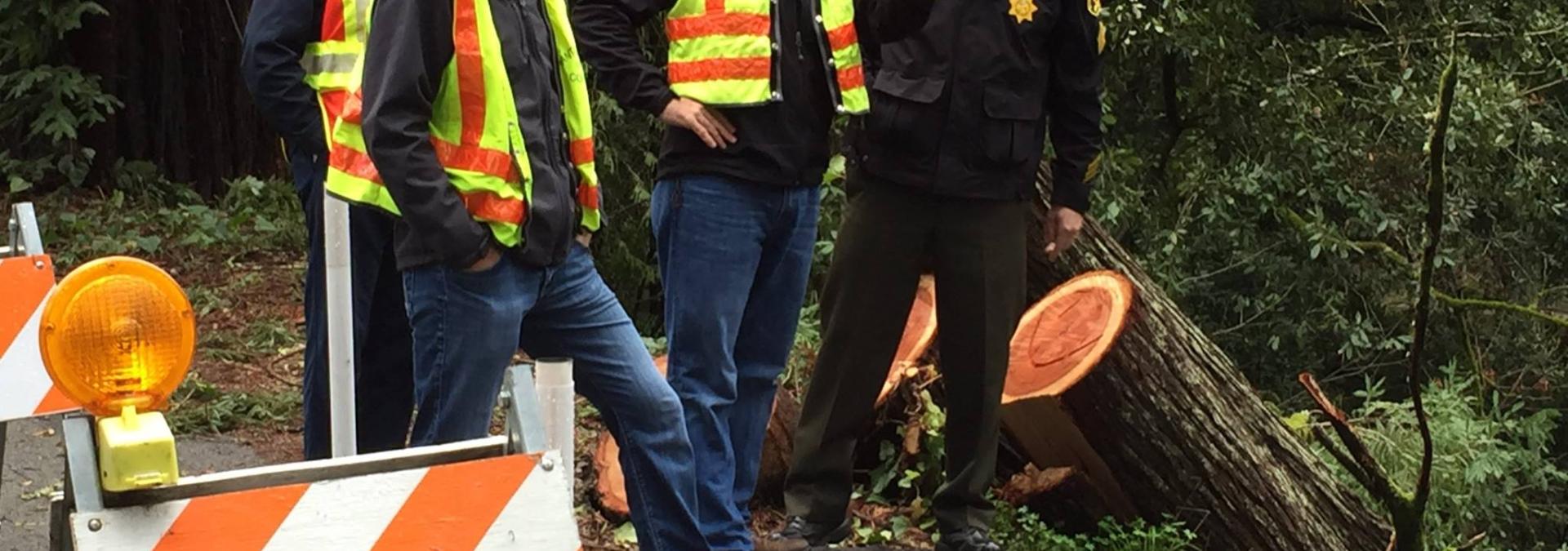Wildfire, Earthquake, and Storm Preparedness Resources

For more information regarding the 2023 Winter Storm, please visit my 2023 Winter Storm Resources Page.
Sign Up for Emergency Alerts:
Sign up for emergency alerts through http://calalerts.org/ Wireless Emergency Alerts get you critical information quickly, including evacuations and major road closures
Alerts are issued when an imminent threat to life or property exists in your area, including severe man-made or natural disasters such as earthquakes or wildfires.
To help protect you and your family in the future, FEMA has tips for how to be prepared for severe weather.
Click here for additional information about the National Flood Insurance Program (NFIP).
County's Office of Emergency Services:
- Monterey County: 831-796-1900
- San Luis Obispo County: 805-781-5000
- Santa Clara County: 408-808-7800
- Santa Cruz County: 831-454-2188
The California Office of Emergency Services offers resources for individuals, business, schools, and local or tribal governments.
Wildfire Preparedness
Living near California’s natural areas means facing a higher chance of wildfires. Knowing how to prepare is key to keeping your home and family safe.
Start with your home by hardening your residence, shaping a safety zone around it, and selecting fire-resistant plants in your landscaping.
Prepare for a potential emergency by building a wildfire action plan, practicing an emergency evacuation plan with your family including children and pets, and packing a “go bag” in case of immediate danger.
If disaster strikes follow the evacuation guide, secure your home, and arrange for the wellbeing of your animals.
If you have questions or need additional assistance, please reach out to one of my four district offices which can direct you to the information you need to stay safe this season.
Earthquake Preparedness
Prepare you and your family:
It is very important that you talk with your family and put plans into place that will help in the case of an earthquake. Here are some of the things that you should discuss with your family.
- Practice stop, drop, and cover. Do not head for doorways, they are not more structurally sound than the rest of the house, and it is best to cover underneath a piece of furniture.
- Pick a safe place in each room of your home where your family can seek shelter in the case of an earthquake.
- Go to your child's school and make sure they know the safest places are in the school. Talk to the faculty and make sure there is a plan in place for your kids in the case that an earthquake happens.
- Designate at least two emergency contacts in the case that you or another guardian can't communicate to other family members. One of these contacts should be out of the State.
- Create a rallying point near your house where you and your family will meet at the end of an earthquake. Make sure every family member knows where that point is located.
Prepare an Earthquake Kit:
Have two kits in the case of an earthquake one for your car and one for your house. Be sure that everyone in the family knows where they are located, and what is inside of the kit. Here is a list of items that you should have in your earthquake kit:
- Water is vital, make sure every family member has at least one gallon of water a day. Plan at least two weeks supply of water, and don't forget about pets!
- Non-perishable food such as nuts, dried fruits, crackers, and peanut butter. Items that have plenty of nutrients that you and your family can rely on.
- Make sure that you have a first aid kit. This first aid kit should include, bandages, non-prescription drugs, antiseptic, digestive acid, and other important medical items that you believe your family may need
- Sleeping bags and other items that are meant to keep you warm like blankets and heavy jackets.
- Radios are good to have so that you can stay informed about news that is going on
These kits will have different items for every family so customize yours accordingly. There are some for purchase online that work great but be sure to add any provisions that are unique to your family.
After the Earthquake
Expect after-shocks, so continued to be alert and ready. Here are some more actions you can take after an earthquake:
- Check yourself to see if you are hurt and help others if you have training.
- If you are in a damaged building, go outside and quickly move away from the building. Do not enter damaged buildings.
- If you are trapped, protect your mouth, nose and eyes from dust. Send a text, bang on a pipe or wall, or use a whistle instead of shouting so that rescuers can locate you.
- If you are in an area that may experience tsunamis, go inland or to higher ground immediately after the shaking stops.
- Text messages may be more reliable than phone calls. Save phone calls for emergencies.
Disaster Assistance
Other government agencies offer disaster assistance for those affected by droughts or flooding. The U.S. Small Business Administration can provide low-interest disaster loans for qualifying homeowners, businesses, and other organizations. They offer both Physical Disaster Loans and Economic Disasters Injury Loans for those who qualify.
Agriculture producers can also seek assistance under qualifying disasters through the U.S. Department of Agriculture's Farm Service Agency (FSA). For assistance inquiries, contact your local FSA office. The best points of contact for producers are below:
For more information, please visit the California State FSA page.